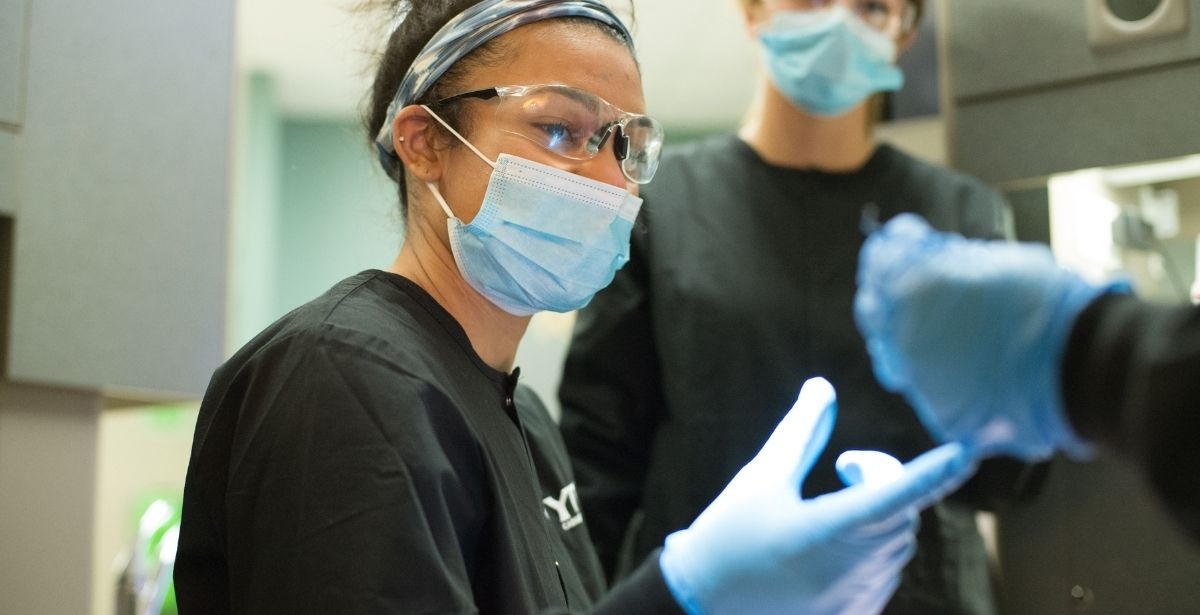
What Is an EFDA Program?
As a Dental Assistant, you’ll be busy all day working with patients, helping the doctor, and being part of a dental team. You’ll answer phones, greet patients, schedule appointments, and assist dentists during procedures. But there are some limitations to what you can do when you’re a Dental Assistant and not an Expanded Function Dental Assistant. As an EFDA, you’ll be authorized by your state to perform more technical procedures, which means you’ll need to learn additional skills from your training program.
What’s the Difference Between a Dental Assistant and an EFDA?
By law, an EFDA performs extra duties that a regular Dental Assistant cannot. As a Dental Assistant, you can take care of a lot around the office, including duties related to basic patient care and office management. Here are just a few:
- Sterilize dental tools and equipment
- Make sure patients are comfortable in the chair
- Order office and medical supplies from vendors
- Take patients’ vital signs
- Record patients’ dental histories and treatments
- Educate patients on oral hygiene and health
As an Expanded Function Dental Assistant, you can perform all of these duties and more. Under the supervision of a dentist, an EFDA can also do the following in the State of Pennsylvania:
- Give fluoride treatments
- Apply cavity liners and bases
- Place and remove rubber dams and matrices
- Place, carve, and contour amalgam restorations
- Perform coronal polishing
Why Should I Become an EFDA?
If you’re interested in a career as a Dental Assistant, you may want to set your sights on becoming an EFDA from the start. Why? For one thing, the credential looks great on your resume and makes you stand out from other job candidates who can’t perform those expanded functions. Dentists also appreciate EFDAs because they can take tasks off the dentist’s plate. That means the dentist will have more time to see other patients. It’s also possible to earn more money as an EFDA. According to The Dale Foundation, EFDAs typically earn a higher salary than regular dental assistants because of the extra work they do.
How Do I Become an EFDA in Pennsylvania?
To work as an EFDA in Pennsylvania, you’ll need to complete a training program. That program will prepare you to sit for the state board exam, which will determine whether or not you can earn your license.
In a basic Dental Assisting program, you’ll learn about dental science and chairside procedures as well as how to perform the duties of an administrative assistant. But in an EFDA program, you’ll advance to hands-on instruction of the expanded functions mentioned above. You’ll learn in a lab under the guidance of professionals who have years of experience in the industry. At YTI Career Institute, our Expanded Function Dental Assisting program also gives you the chance to complete an externship at a local dental facility. The externship will give you real-world, on-the-job training that will prepare you for first EFDA job.


